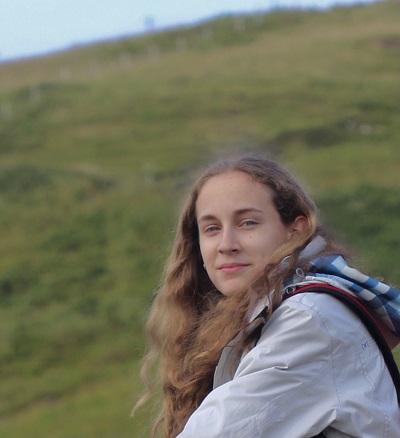Today the British Ecological Society (BES) has announced the winners of its journal prizes for research published in 2020, which are awarded annually to the best paper in each journal written by an early career author at the start of their research career. Blanca Arroyo Correa from the Doñana Biological Station - CSIC is one of the winners and is awarded by the John L Harper Early Career Researcher Award for her paper "Alien plants and flower visitors disrupt the seasonal dynamics of mutualistic networks", published in the Journal of Ecology.
As an undergraduate student, Blanca Arroyo-Correa did several stays at Doñana Biological Station (EBD-CSIC), the Centre for Ecological Research and Forestry Applications (CREAF) and the University of Stirling in Scotland, where she developed different projects studying multiple aspects of the ecology and evolution of plant-pollinator interactions. The research she conducted during her internship at Doñana Biological Station resulted in the receipt of the 2020 Harper Prize.
Blanca's winning paper presented results of a novel study investigating the disruptive effects of both alien plants and alien pollinators on temporal changes in plant-pollinator networks. Field data coupled with species removal simulations showed that alien species in both trophic levels led to rewiring and increased species turnover of plant-pollinator networks.
Professor David Gibson, Senior Editor of Journal of Ecology, said: "Blanca's paper not only addresses important concepts related to our understanding of the effects of alien species, but it has important conservation implications suggesting that managers need to account for the seasonal dynamics of trophic interactions."
Blanca Arroyo-Correa said: "I am extremely proud of this study as it represents my very first experience of actively engaging my own research questions and being involved in a project from scratch. One of the most enjoyable parts was to collaborate with two excellent researchers, Carine Emer (Federal University of Pernambuco) and Laura Burkle (Montana State University), who were immensely supportive and encouraging during the conduct of this research."
Reference:
Blanca Arroyo?Correa Laura A. Burkle Carine Emer. Alien plants and flower visitors disrupt the seasonal dynamics of mutualistic networks. Journal of Ecology. https://doi.org/10.1111/1365-2745.13332
Further information: https://www.britishecologicalsociety.org/british-ecological-society-announces-journal-prize-winners-2020/


 Las altas temperaturas están provocando que las lagunas y las marismas de Doñana pierdan agua rápidamente
Las altas temperaturas están provocando que las lagunas y las marismas de Doñana pierdan agua rápidamente




